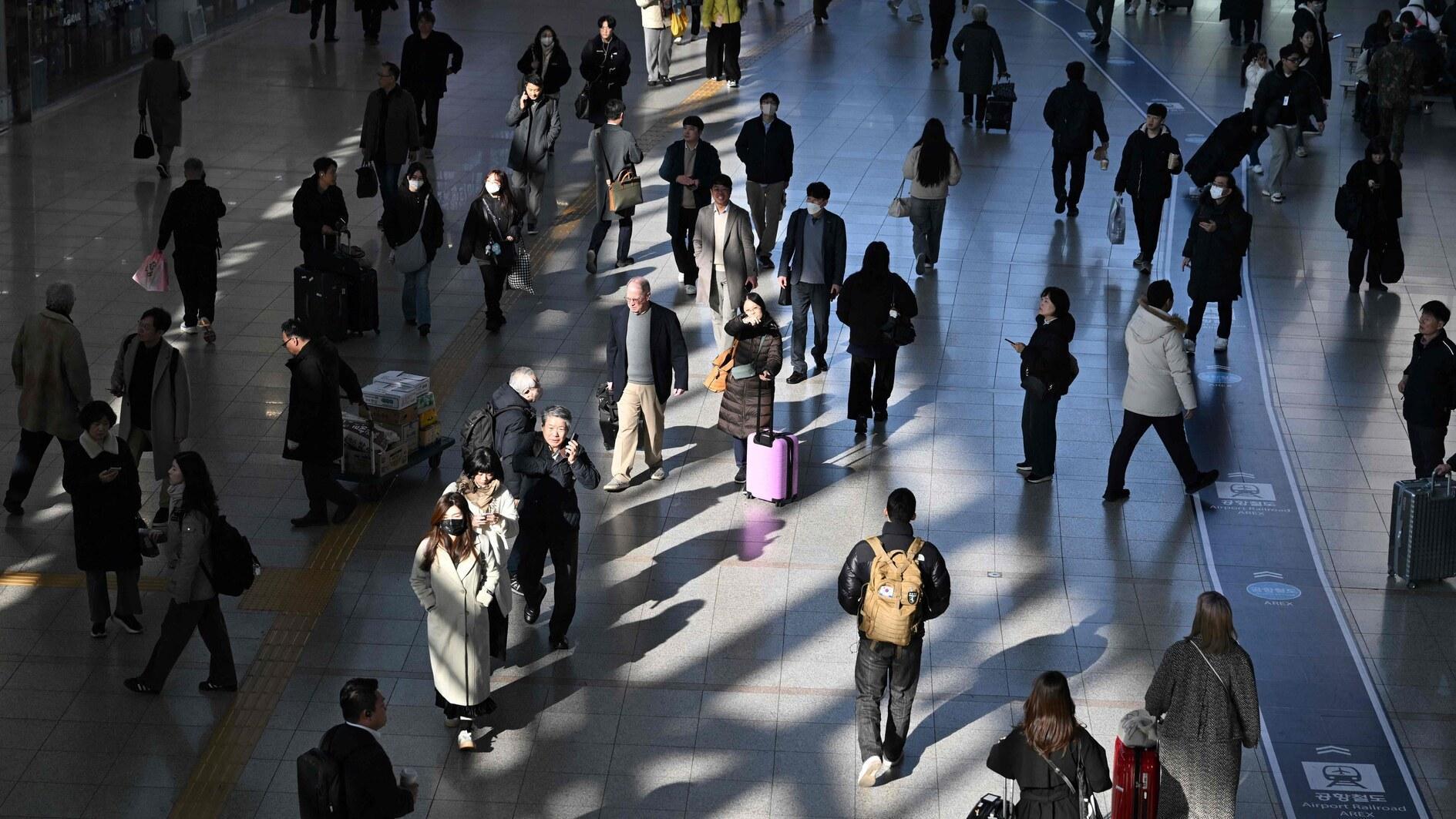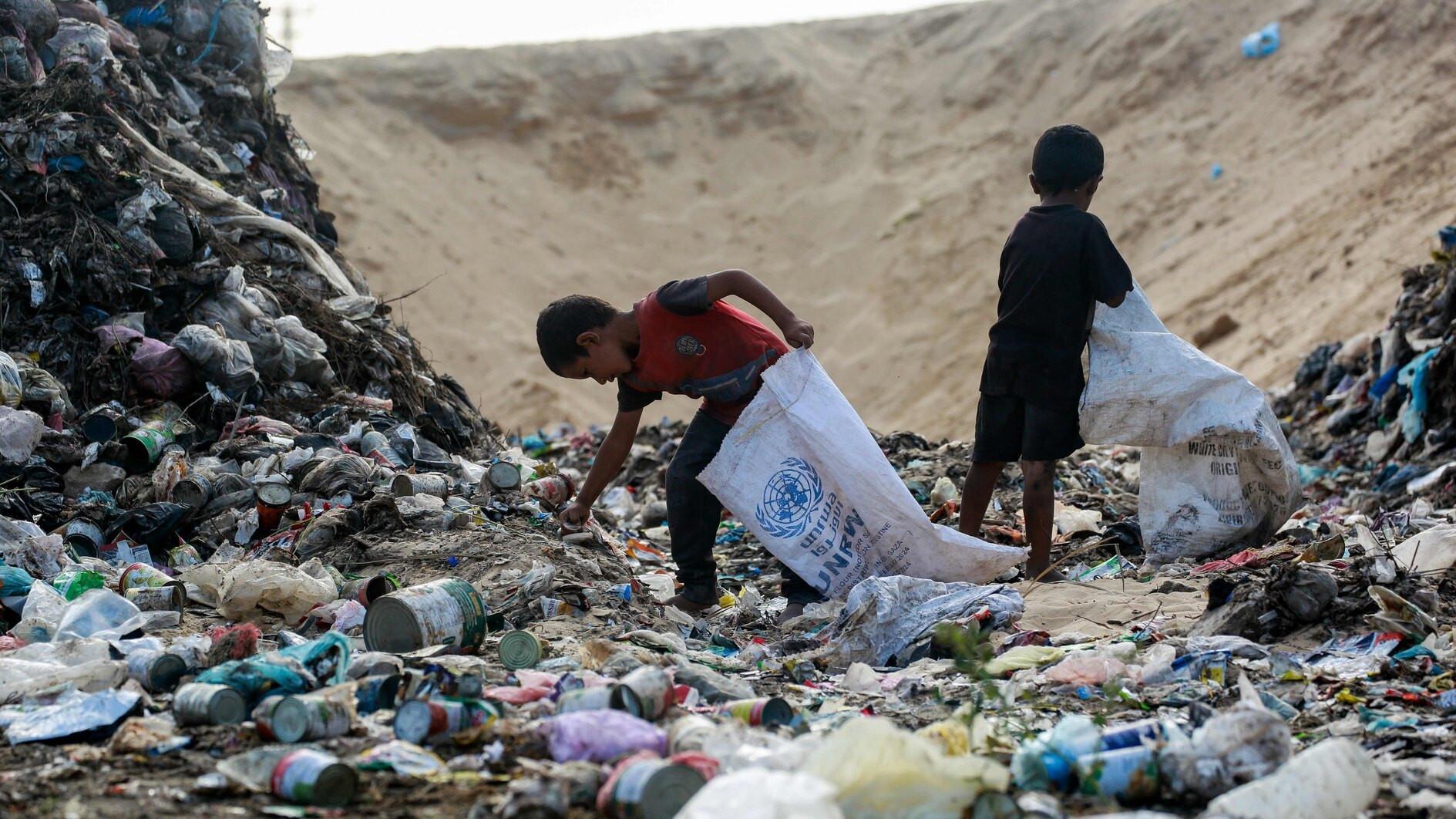South Korea births rose last year on surge in marriage
SEOUL

People walk through a train station in Seoul on Feb. 26, 2025.
The number of births in South Korea rose last year for the first time in more than a decade on the back of a rise in marriages, officials said on Wednesday, bucking a trend for a country battling a demographic crisis.
South Korea has one of the world's longest life expectancies and lowest birth rates, a combination that presents a looming demographic challenge.
Seoul has poured billions of dollars into efforts to encourage women to have more children and maintain population stability.
The crude birth rate, the number of babies born per 1,000 people, was 4.7, interrupting a continuous downward trend since 2014, according to preliminary data from Statistics Korea.
And the fertility rate, or the average number of babies a woman is expected to have in her lifetime, was 0.75, "up 0.03 from 0.72 in 2023," it said.
"The number of births in 2024 was 238,300, an increase of 8,300 [3.6 percent] from the previous year," the report added.
Park Hyun-jeong, an official from Statistics Korea, attributed the rise to an increase in marriages as well as shifting demographics.
Park said the number of marriages last year had been the most since 1996, "the highest on record."
The average maternal age at childbirth in 2024 was 33.7 years, Seoul said, one of the highest in the world.
But the fertility rate remains far below the 2.1 children needed to maintain South Korea's population of 51 million.
At current rates, the population will nearly halve to 26.8 million by 2100, according to the Institute for Health Metrics and Evaluation at the University of Washington in Seattle.
















